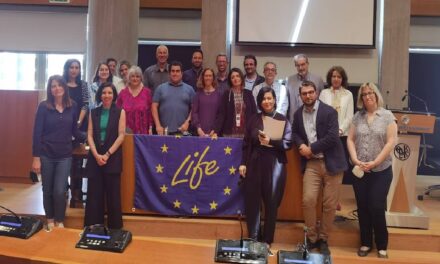Climate change will cause a further increase of temperatures in Thessaloniki of 0.6 – 1.5 °C by 2050 and 2.6 – 4.5 °C by 2100. This will make the already warm city even warmer, causing even more discomfort to its inhabitants. This means that in the urban fabric of Thessaloniki, the number of heat wave days is expected to double by 2050, while by 2100 it will increase 12 times, reaching 32 days per year. These are the results of the simulations performed by meteorologist Dr. Stavros Keppas, based on the worst-case scenario of the evolution of greenhouse gases emissions. Dr. Keppas is a researcher at the Laboratory of Atmospheric Physics, School of Physics, Aristotle University of Thessaloniki. The objective of this research work, which is part of the LIFE ASTI project, is to study extreme heat waves in the current and future climate, to analyse the microclimate of urban areas and to investigate green interventions. You can read the relevant article at grtimes.gr HERE
HOW WILL CLIMATE CHANGE WILL AFFECT THE CLIMATE OF THESSALONIKI BY 2100






